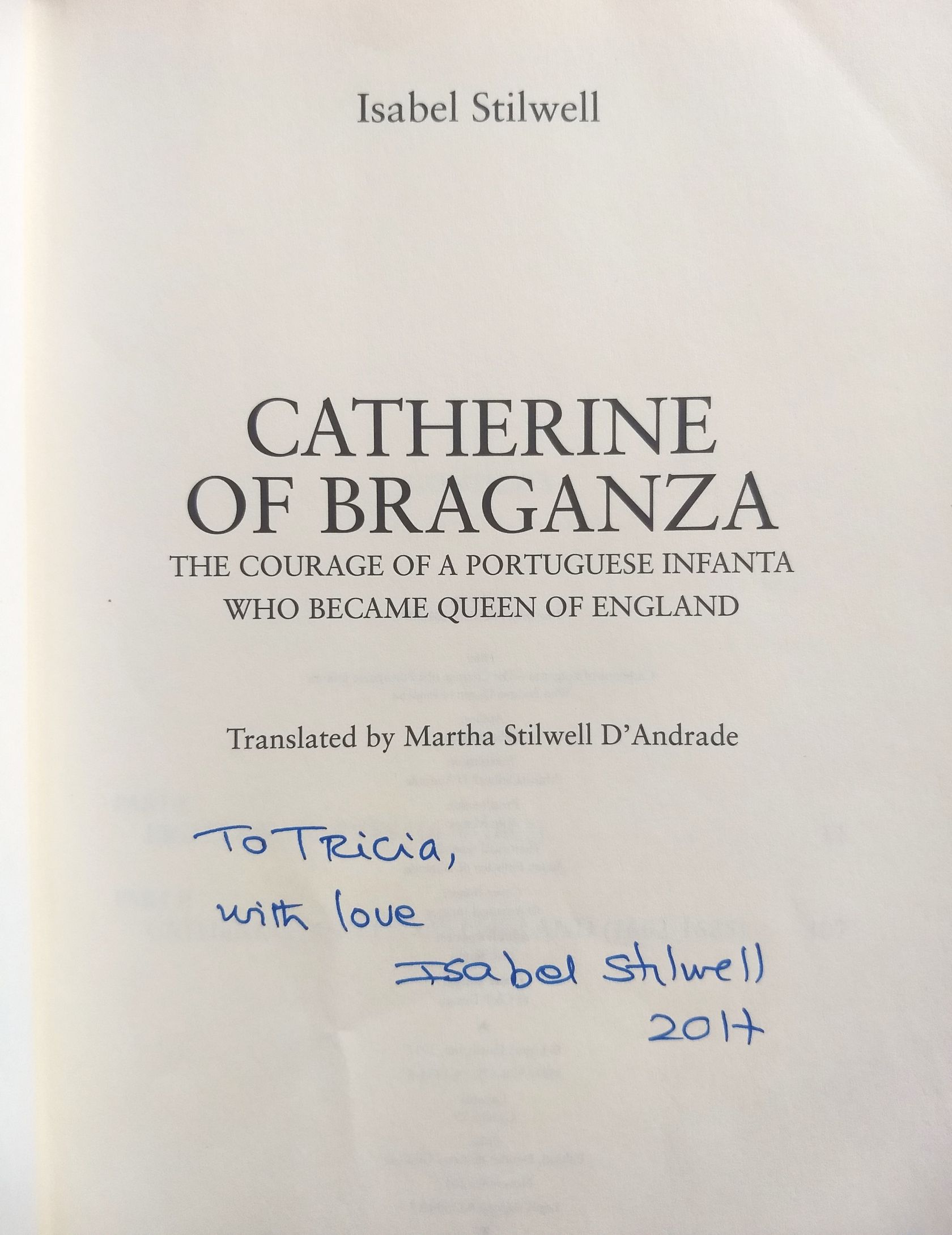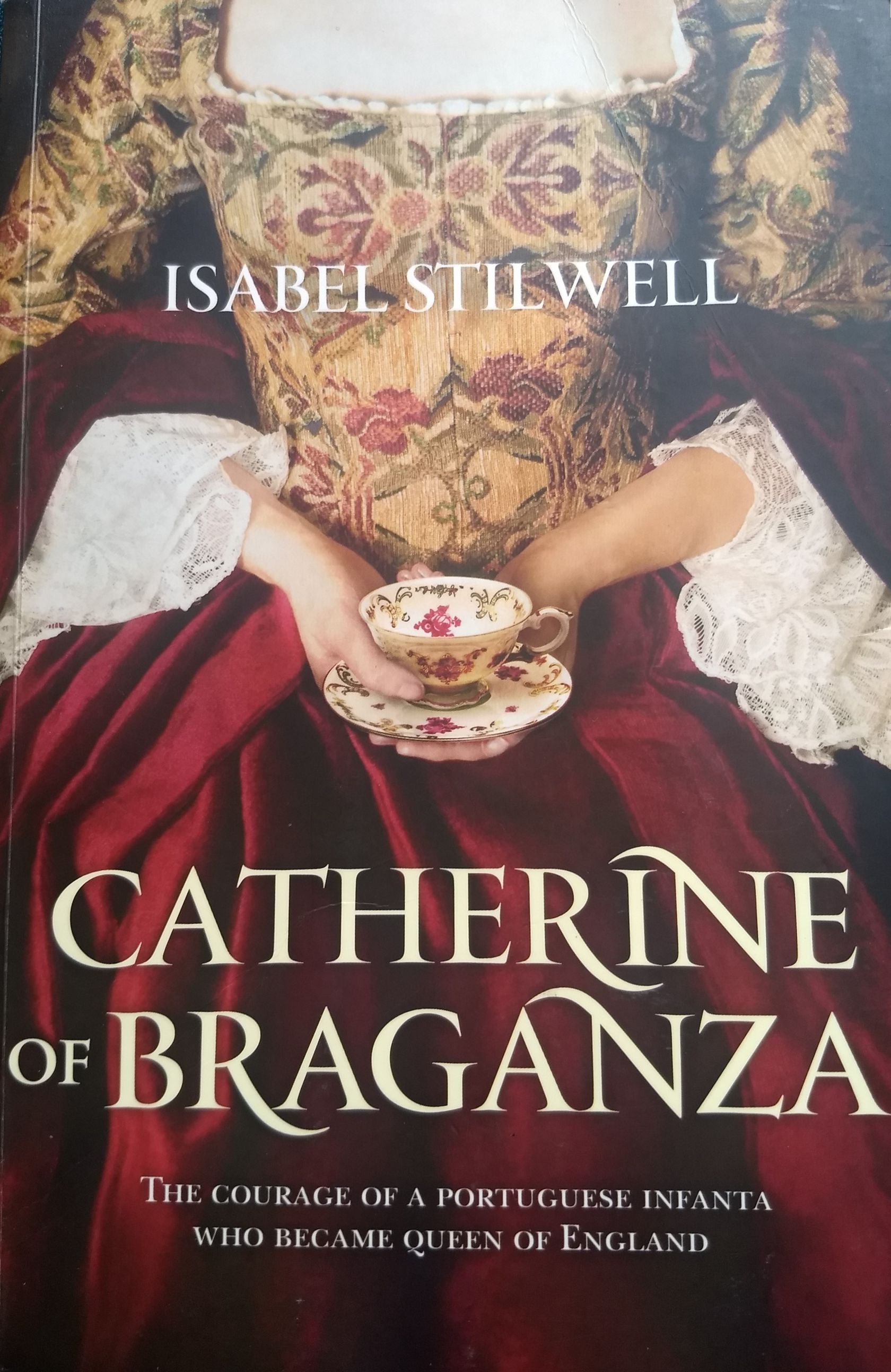So says famed historical novelist and journalist Isabel Stilwell in a recent interview with
El Trapezio. In it, she paints the portrait of the protagonist of her latest novel, Inês de Castro—Spy, Lover, Queen of Portugal. Anyone who has visited the Monastery of Santa Clara-a-Velha or Quinta das Lágrimas in Coimbra, or the Monastery of Alcobaça is well acquainted with her life story, replete with romance and political intrigue.
As Stilwell points out, Spanish readers may be surprised to learn that Inês was Galician, raised in the castle of Albuquerque. For all the rivalry and conflict that has existed historically between Spain and Portugal, there have been many fascinating ties that bind.
Of course, one of the greatest of Portugal’s country affiliations has been the longstanding connection with the British Empire. Delving into that link through historical fiction opened my eyes to its intricacies and its duration.
For years, I was a member of International Women in Portugal. Through that organization I was learning to play bridge, participating in Portuguese and French conversation meetups, and part of a book club. Fellow members were buzzing in 2017 about a book signing in Cascais, announcing the translation into English of Stilwell’s Catherine of Braganza—The Courage of a Portuguese Infanta Who Became Queen of England. I decided to attend. It was a joy to discover the book, to hear the author speak, and also to learn there was another book available in English: her first historical novel, Philippa of Lancaster—English Princess, Queen of Portugal. And meeting Ms. Stilwell in person was a delightful honor.
Speaking of the latter historical figure, D. Phillipa of Lancaster is considered one of the most important female personalities of the Medieval era, and in fact was designated in 2023 as the “main attraction” of the Viagem Medieval en Terra de Santa Maria, or the Medieval Journey in the Land of Santa Maria. The part was played by Maria Mar, actress and director of the Experimental Theater of Orpheon of Feira. Mar described Phillipa of Lancaster as “a very intelligent and genius woman since childhood.” If your Portuguese is polished, you may enjoy this podcast in which Stilwell speaks of the legendary lady, highlighting her role as a remarkable woman in a milieu of powerful men. She also discusses the famous queen with Carl Munson of Expats Portugal in an interview (in English) from a few months ago.

Incidentally, of the numerous expat groups I’ve encountered in my fifteen years in Portugal, Expats Portugal stands out as one of the best sources of information to enable a smooth transition to life here by offering both excellent opportunities to get answers to tricky questions and chances to meet with like-minded individuals.
And as I made reference to the Viagem, here’s some background, if you’re not familiar with it. This is an annual event taking place in Santa Maria da Feira in the Aveiro District, 23 kilometres from central Porto. Home to the medieval castle, which was once the residence of Portugal’s first king, Afonso Henriques, it makes a perfect setting for the festivities. The largest festival of its kind in Europe, it attracts 1,600 performers and a host of visitors who, for 12 days each summer, go back through the annals of time together. Each year has a different theme and tells a new story of Portugal’s history. This year’s event (30 July – 10 August 2025) will feature the historical figure Dom Afonso V.
Perhaps next year the personage of interest will be another of Ms. Stilwell’s subjects, Maria II. In Maria II—The Extraordinary Friendship of Maria and Victoria, Two Queens in a World of Men, Stilwell presents the amazing story of the connection between the female monarchs of Portugal and England. (You can find Stilwell’s works, in English and Portuguese, online here.)

All my life, I was never a history buff, yet in moving to Portugal, whole new worlds have opened up for me. The country’s past gloriously unfolded, enabling me to learn history firsthand. I have visited sites pertinent to the Age of Discovery, learned of centuries of struggles and war, and royal intermarriages with other great nations. I have visited birthplaces, residences, and burial sites. I’ve toured churches where regal weddings took place, and where the Knights Templar celebrated the Roman Catholic Mass on horseback. I’ve photographed a seemingly limitless number of castles. (Thank goodness we have moved on from the age of rolls of film that needed to be developed.)
People speak of the joy of experiencing new cuisines and languages and cultural traditions when visiting and living abroad. I agree. But I’ve learned that delving into the complexity of the past is positively golden.













It was with great pleasure that I read T.Pimental’s article. I share her interest in our history and culture, and appreciate the reading recommendations. Nations history is replete with bonds strengthened by royal families marriages. These families, in my point of view, are the authentic representation of their people, free from political choices or hidden interests.
By Maria Machado from Porto on 26 Jul 2025, 16:26